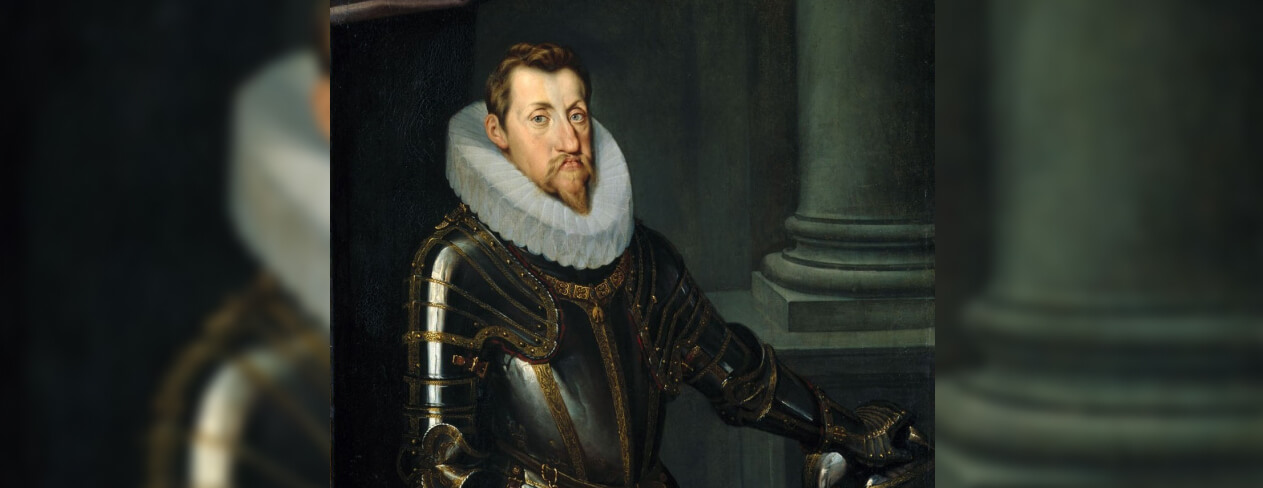
Holy Roman Emperor Ferdinand II died on 15 February 1637. As a grandson of Ferdinand I, he was not originally destined to become emperor but succeeded to the throne only after his nephews, Rudolf II and Matthias I, died childless.
Ferdinand was a staunch supporter of the Counter-Reformation. Unlike his predecessors, he made no attempt to maintain a balance between his Catholic and Protestant subjects, particularly in Bohemia, where religious tensions were escalating into violence. The result of these growing hostilities was dramatic— in 1618, three imperial envoys were thrown out of a window by enraged Protestants, an event known in history as the Defenestration of Prague (fortunately, they survived). The anti-Habsburg uprising that followed was swiftly crushed by imperial troops. However, rather than seeking reconciliation, Ferdinand had all the Protestant leaders executed. As a result of these harsh measures, the Czech national gentry was virtually wiped out and replaced by German-speaking nobility. The supremacy of both the Catholic Church and the Habsburg dynasty was once again secured—but at an extreme cost.
Ferdinand’s uncompromising stance ultimately led to the devastating Thirty Years’ War, a full-scale conflict among European powers, in which the German lands suffered the most.
Access to the Metatext via placing an order for an augmented product. See Terms of Use